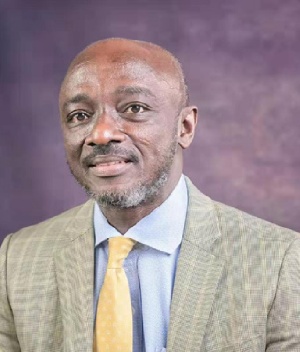Business News of Thursday, 15 May 2025
Source: www.ghanawebbers.com
The tale of two cities: A mirror to black African governance
Time has passed, but my recent trip offered clear insights. The contrast between Cape Town and Johannesburg is striking. It’s no longer a quiet difference; it’s a loud indictment.
Cape Town is alive and thriving. I arrived to find order and promise everywhere. The city boasts sleek highways, clean streets, and efficient transport. Malls bustle with activity, and neighborhoods exude security and dignity.
Even Stellenbosch shows signs of change. Once a stronghold of white privilege, it now welcomes Black and Coloured South Africans as homeowners and professionals.
However, Cape Town has its issues. Racism still exists in the shadows. Homelessness is increasing, and homicide rates are concerning. Yet beneath these flaws lies competence: water flows, lights stay on, and streets are clean.
Then I visited Johannesburg—my Johannesburg. This city holds my memories of business and friendships. But disappointment hit me as I left OR Tambo Airport.
The once-clean terminal now looks tired and neglected. The first pothole on the N1 felt symbolic of decline. My driver bluntly stated, “Johannesburg is in decline.”
He was right about the situation. Traffic lights were out; roads were crumbling. Hyde Park looked worn down with potholes everywhere. Water shortages are common, while electricity blackouts are expected.
This isn’t just decline; it’s governance failure—a painful unraveling of promise.
Cape Town is run by the Democratic Alliance (DA), led mainly by white South Africans. Johannesburg is governed by the African National Congress (ANC), a Black-led party. They share budgets, economies, and history but not outcomes.
Cape Town thrives while Johannesburg crumbles.
This issue goes beyond political parties—it’s about leadership quality in our communities. Why does failure often accompany us in office? Why do basic services like water or electricity seem so difficult to deliver?
We often quote Kwame Nkrumah: “The Black man is capable of managing his own affairs.” But we must prove this capability today.
Have we confused liberation with effective leadership? Colonialism ended; apartheid was dismantled—but mismanagement persists today.
Our cities suffer from incompetence driven by greed and tribalism. Institutions crumble as unqualified individuals rise to power due to loyalty rather than skill.
Yet many capable Black professionals exist; what we lack is willpower—leaders who prioritize merit over mediocrity or nepotism.
We’re running out of excuses for poor governance.
This isn’t about race—it’s about results and accountability. Cape Town shows what’s possible; Johannesburg reveals what’s broken.
We must ask ourselves tough questions:
Are we governing—or merely occupying office?
Are we building—or just surviving?
Are we leaders—or caretakers of decline?
The struggle for liberation has ended; now we fight for efficiency and service delivery instead of mere survival.
Africa stands at a crossroads: rise or rot?
The divide between Cape Town and Johannesburg reflects moral responsibility in leadership that delivers real results—not just dreams.
Denial must end; action must begin now! We need to confront reality without excuses or sentimentality.
It’s not enough to be Black in power—we must also be effective leaders who inspire change.
This continent belongs to us—our cities shape our legacy.
Let us rise together—not as victims but as authors of Africa's renaissance.
Let us choose leadership that builds, serves, and inspires.
Let us do better starting today!
---
Ambassador Edward Boateng is a Ghanaian diplomat, media leader, and entrepreneur with extensive experience across Africa.











